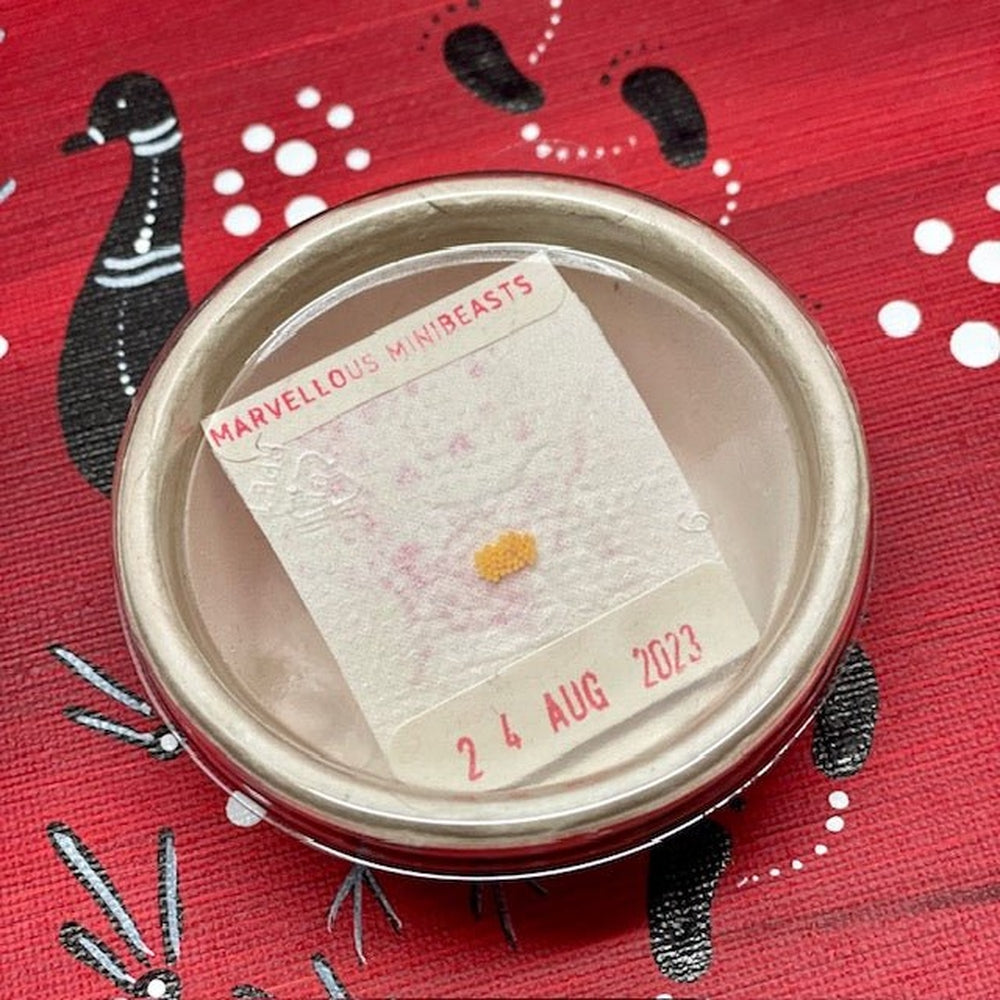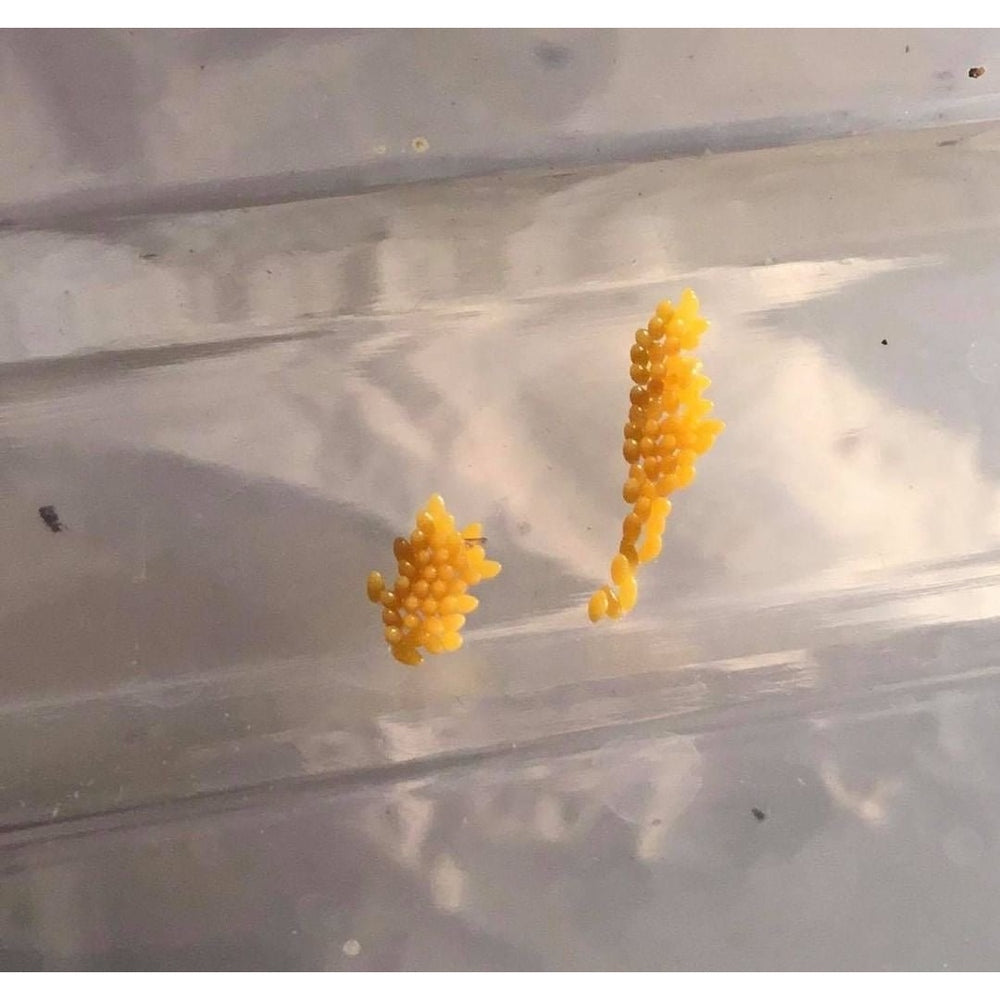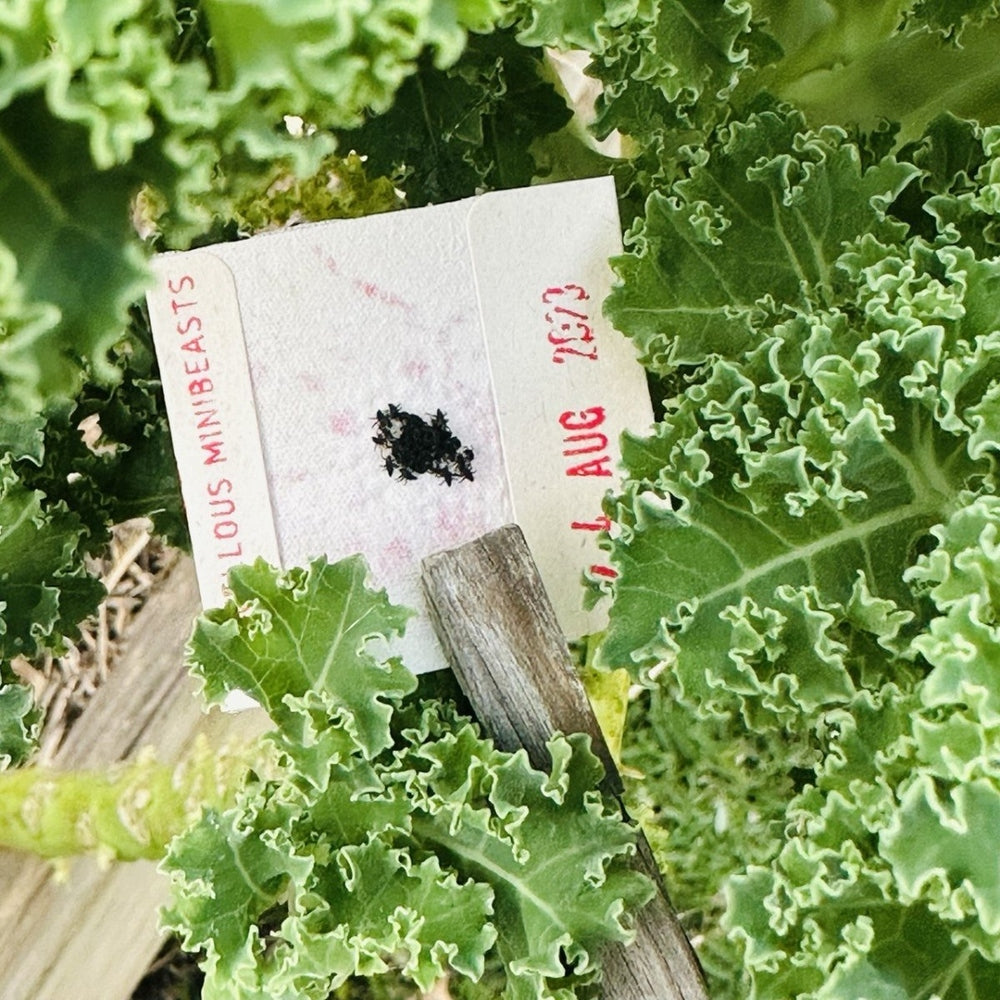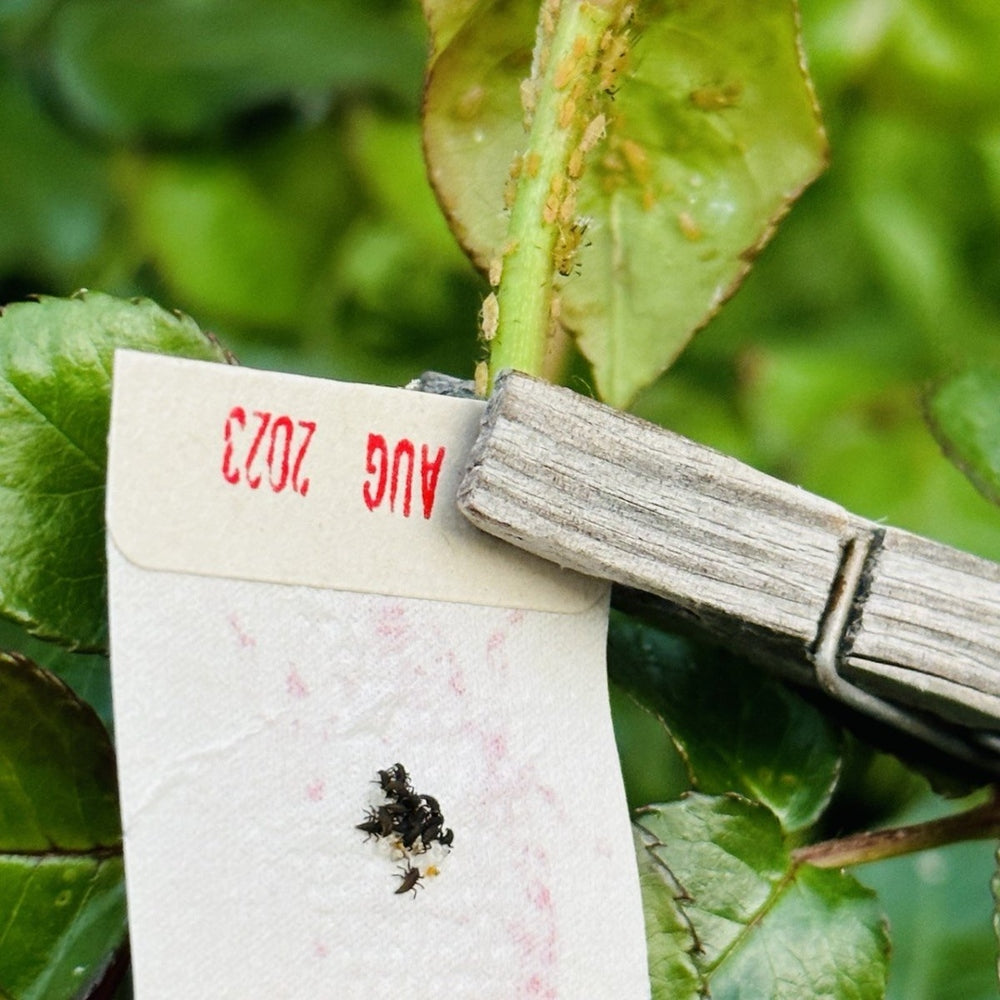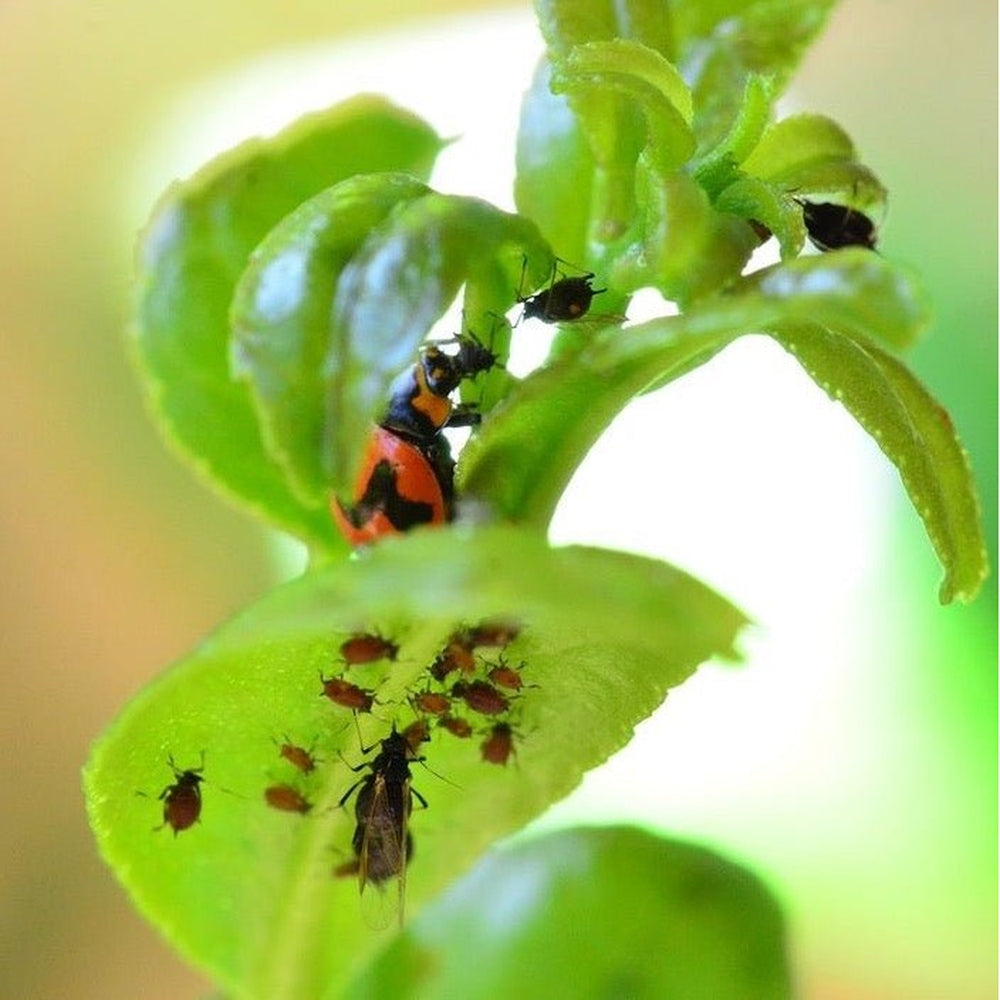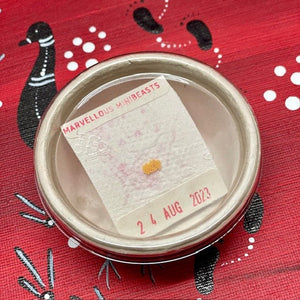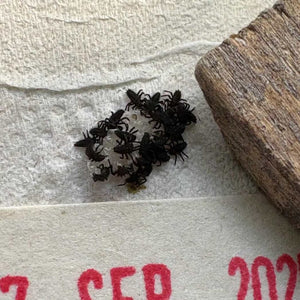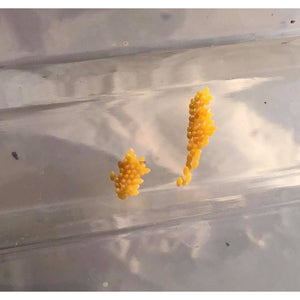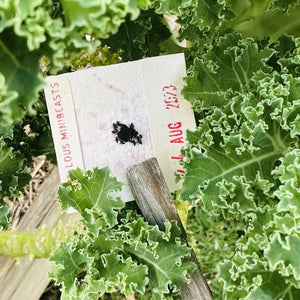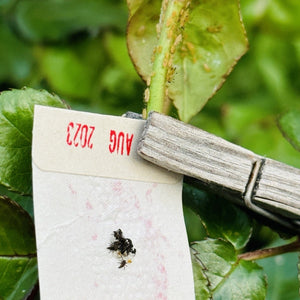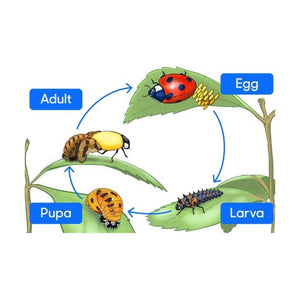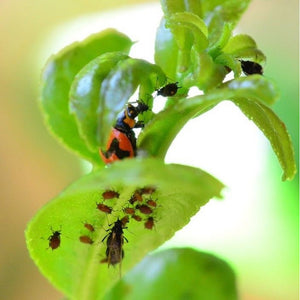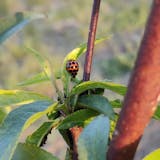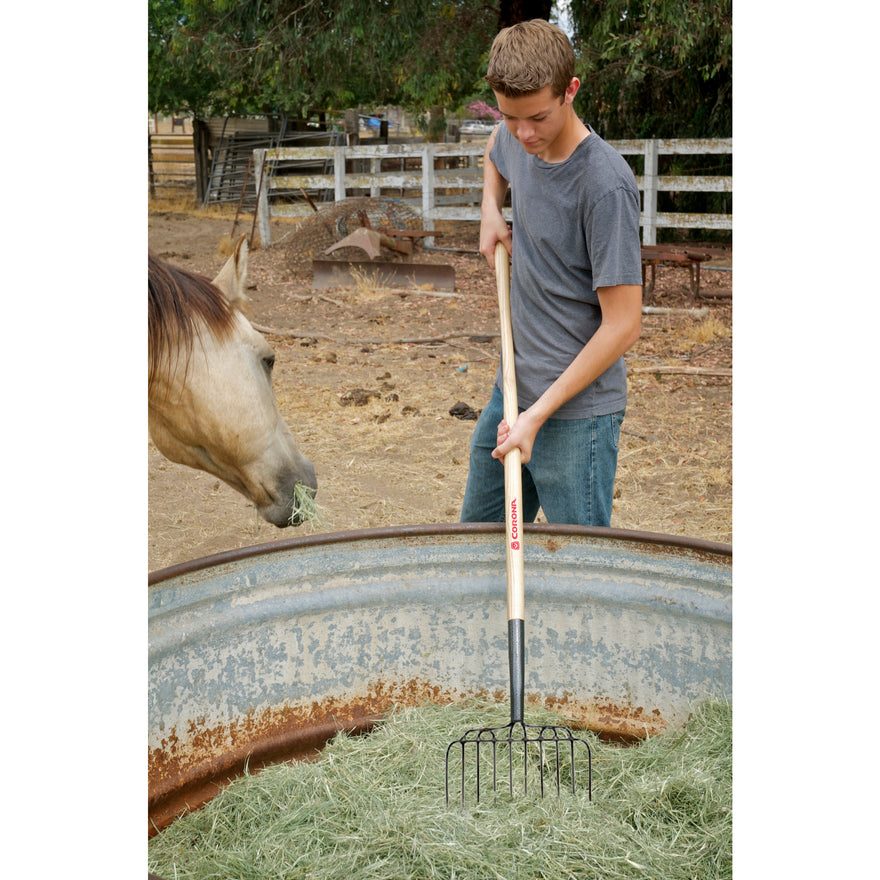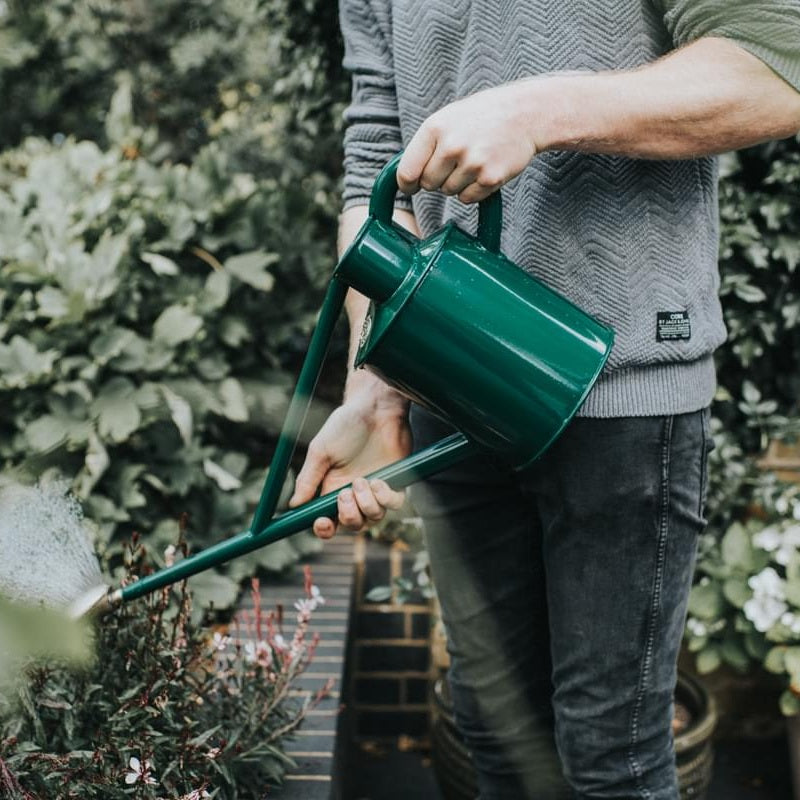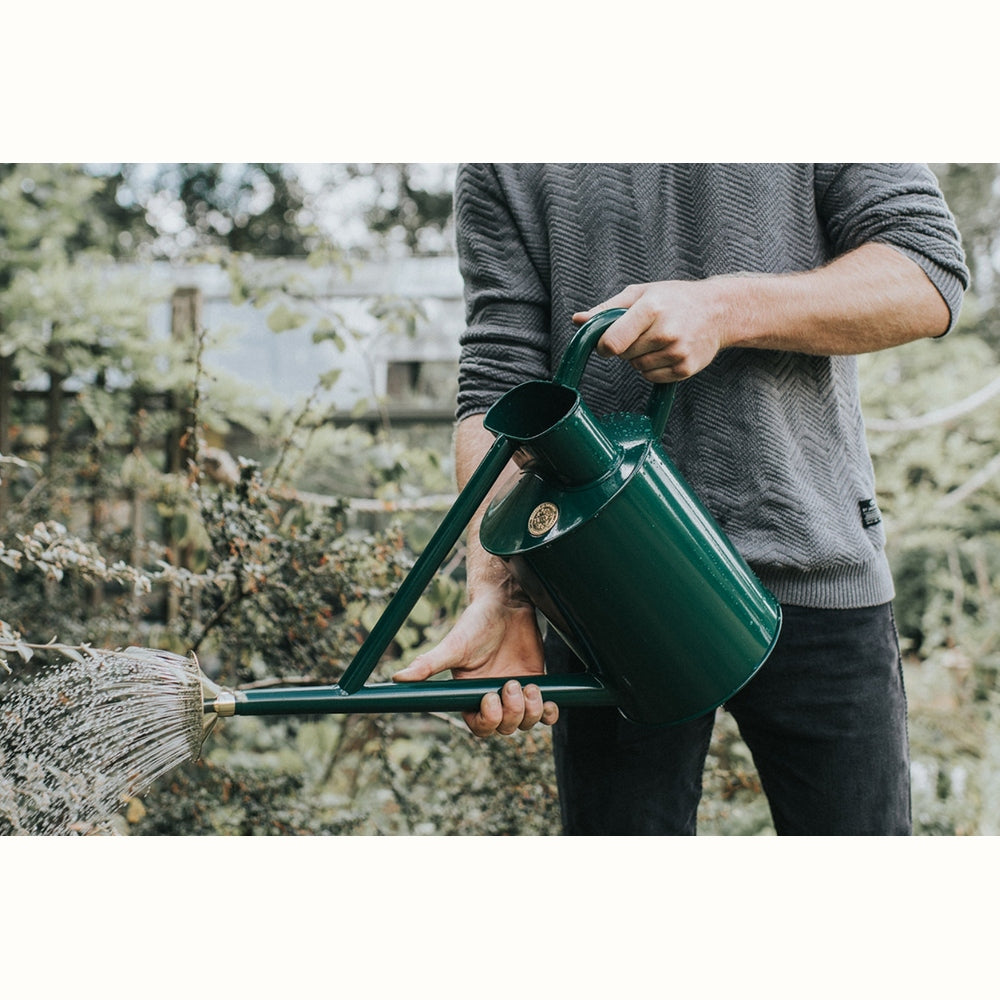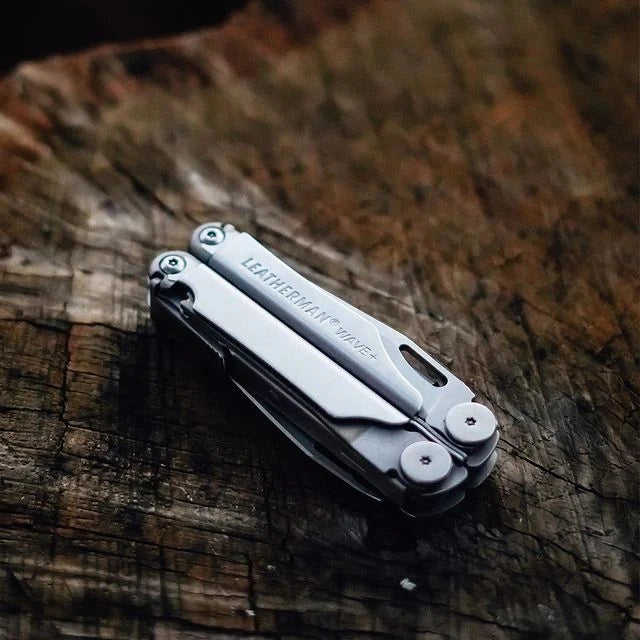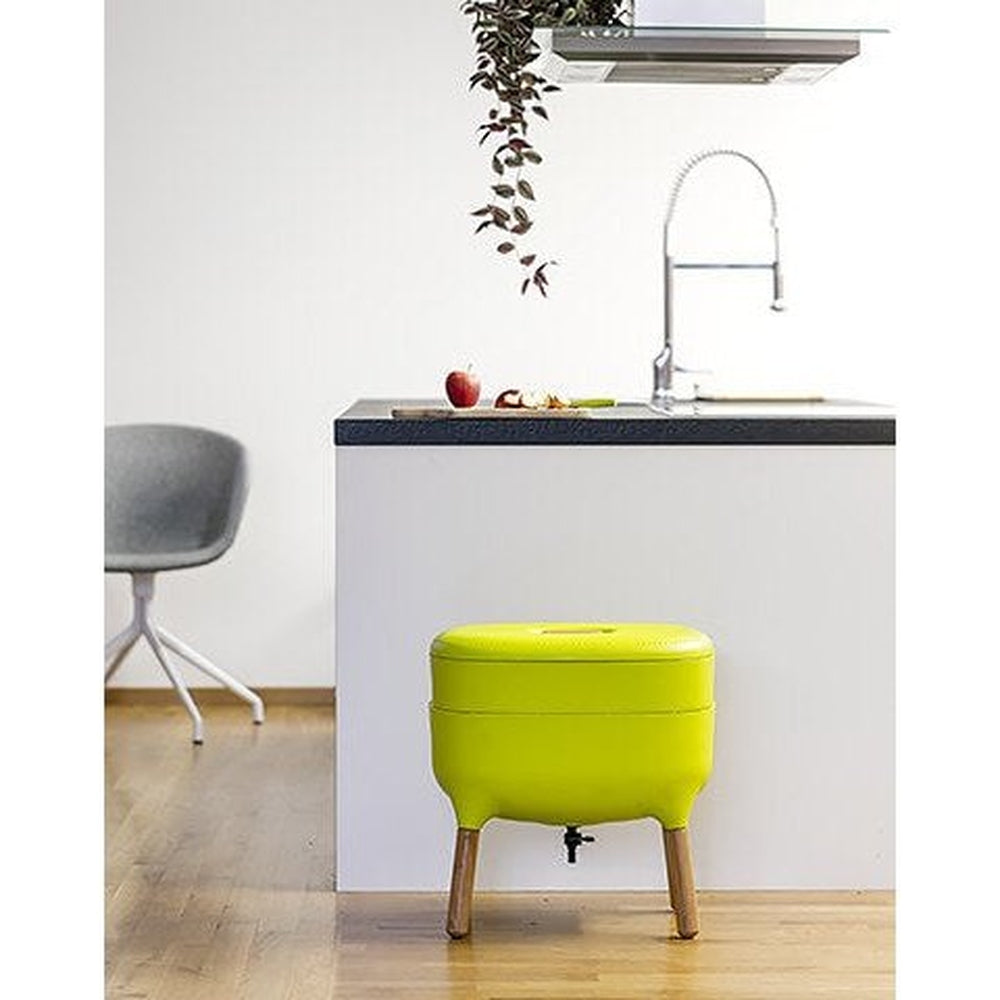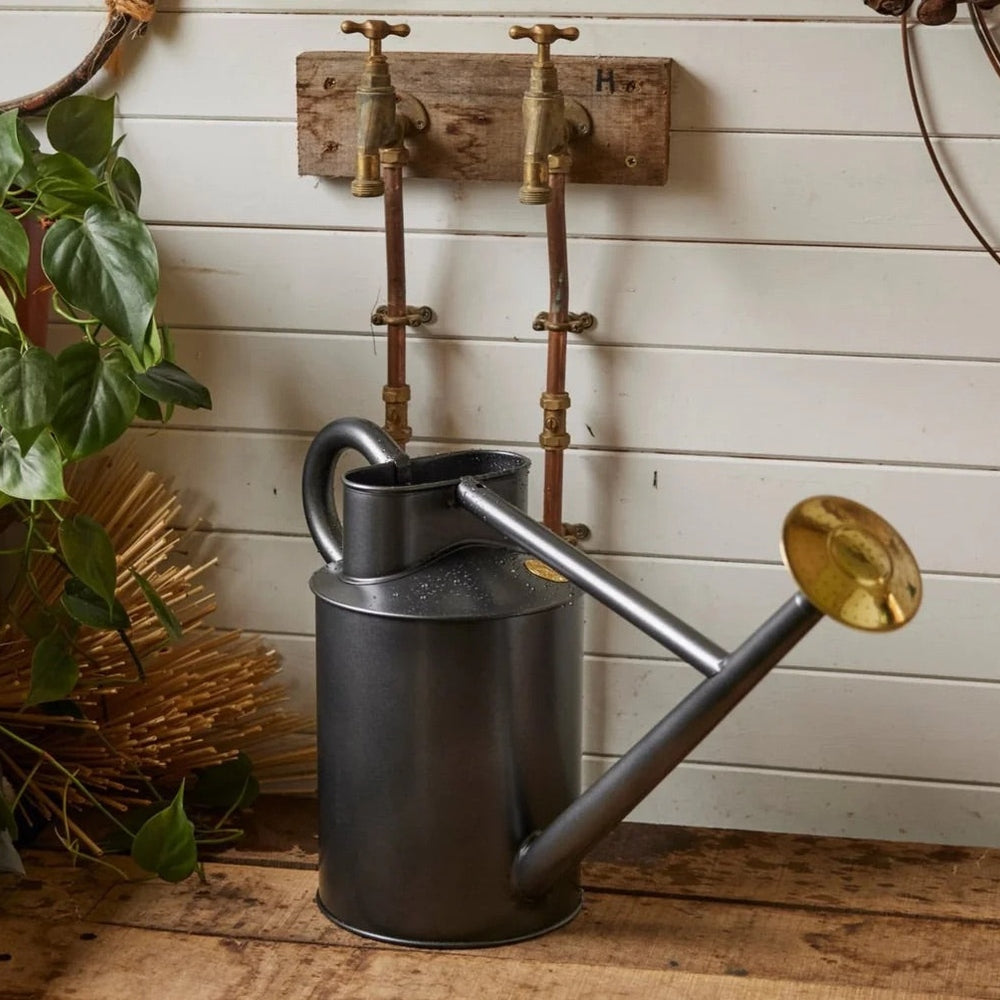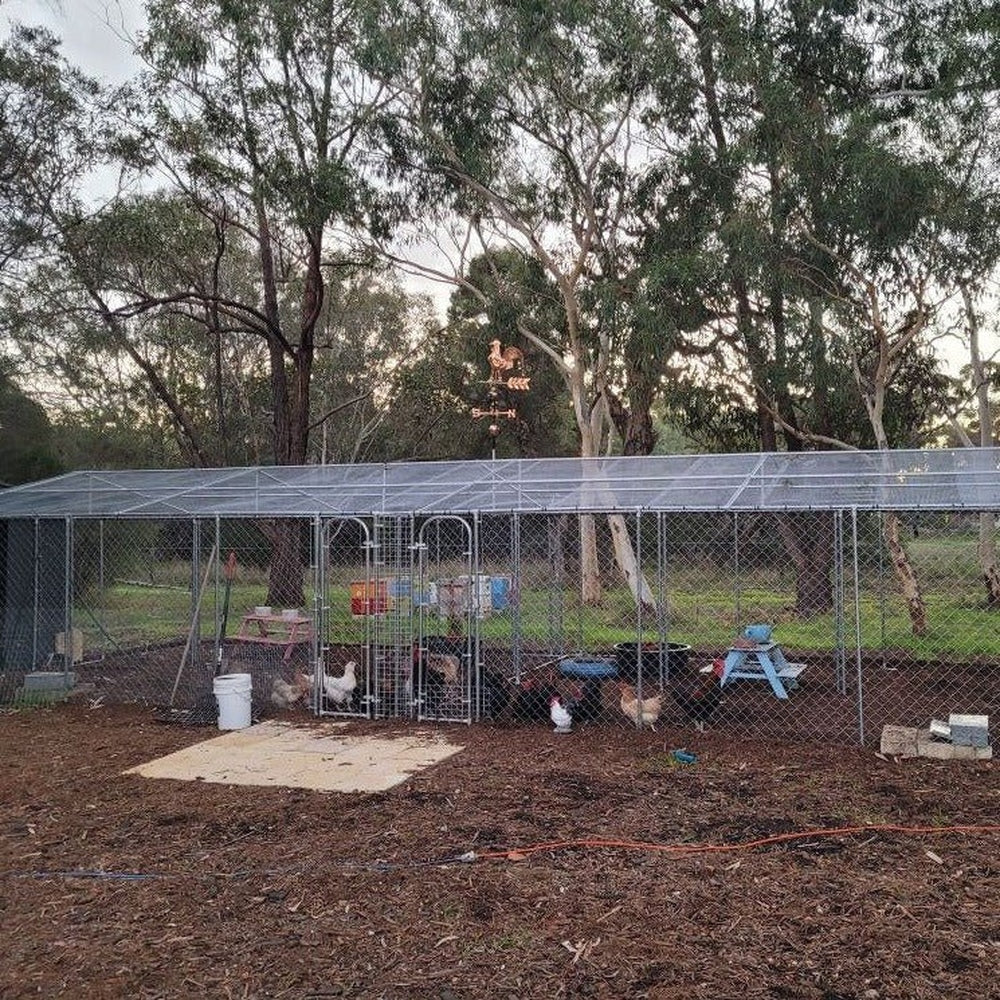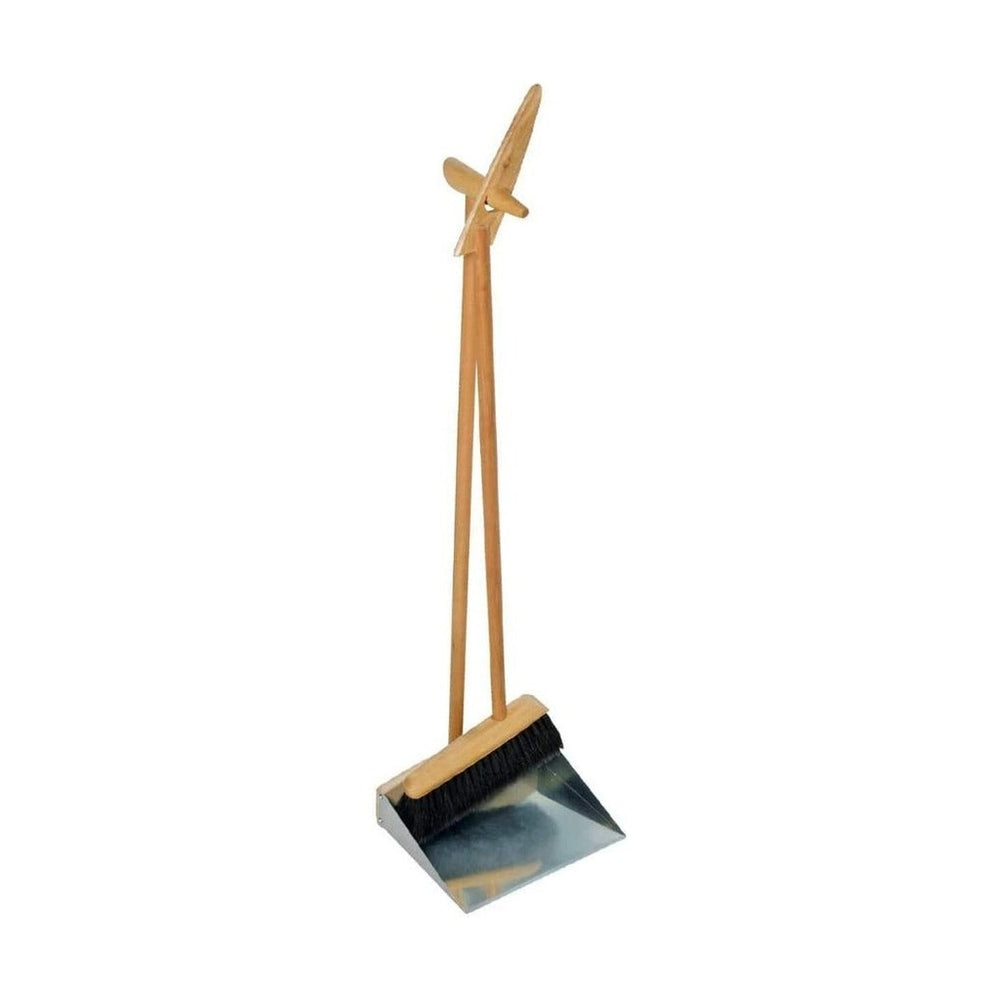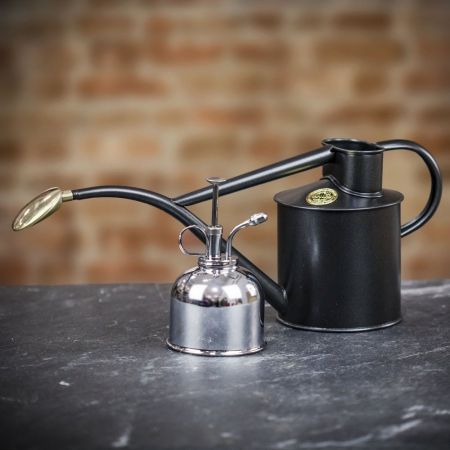Ladybird eggs have started for the season
IN STORE PURCHASE OR ORDER ONLINE AND SELECT Pick Up ONLY AT CHECKOUT
Ladybird eggs ordered through Local Pickup orders, need to be collected from store within 48 hours of placing order due to time sensitive nature of eggs hatching. No refunds for orders that hatch/die if not collected within this window. Hatching larvae must have a food source straight away. We can not ship Ladybird eggs to you because of how quickly they hatch.
These ladybird eggs are exclusive to Urban Revolution for a limited time throughout Spring.
Australian ladybirds are an exciting tool in the home gardener's natural pest control kit. They also provide the most wonderful hands-on home science lesson for children.
Purchase these fresh ladybird eggs to control pests and grow a spray-free, flourishing garden. They are an excellent natural way of promoting a balanced garden ecosystem as part of an integrated pest management plan.
These much-loved beetles are amazing predators of aphids, mealy bugs, mites, scale, white fly, caterpillar eggs plus other insects. An adult ladybird can eat thousands of aphids during its life. Ladybird larvae are also ferocious eaters of aphids.
These wonderful ladybirds are bred in Perth by Danica from Marvellous Minibeasts.
How to Use Ladybirds to Control Pests
Each batch of approximately 20 eggs is supplied inside a small compostable container, attached to a piece of paper towel. Eggs are dated to indicate when they were laid and will hatch 4-6 days after being laid.
After purchasing ladybird eggs, keep them in the container at room temperature, avoiding extremes of heat and cold. When the orange eggs begin to turn grey then black this indicates that the larvae are hatching.
After hatching, the tiny black ladybird larvae will sit in a group for about half a day before beginning to disperse to find food. Ladybird larvae are cannibalistic so it is important that they are attached to a food source soon after hatching. Try to do this after they've hatched but before they begin to disperse. Take care not to touch the larvae.
Simply peg paper onto a pest infested plant and let the little ladybird larvae do the rest. Once the larvae have been released into a pest hotspot you can observe their development as they clean up the target pest. The larvae will grow and moult several times before pupating and emerging as adult ladybirds. The aim is not to completely eradicate insect pests but to maintain them at a lower level that is not damaging your plants.
Ladybirds will consume a range of common garden pests including aphids, mealy bugs, scale, white fly, caterpillar eggs and many more!
Ladybirds are very effective predators of aphids but they may be harmed by pesticides. Direct spraying of infested plants and drift of pesticides from neighbouring areas should be avoided.
Price is per container - each one contains approximately 20-30 eggs.
Please bring your container and/or lid back into the store for reuse.
The ladybird species, native to Australia, is Common Spotted Ladybird, Harmonia conformis.
To contain adult ladybirds on an infested plant, you can use a fruit protection bag.
For a range of natural pest management solutions to implement in your garden, see our integrated pest management bundle.
About Marvellous Minibeasts
Danica McCorduodale is an entomologist and researcher at UWA. Prompted by her friend, Kirstie Pupazzoni who runs Kids Nature Club, she started breeding insects for education in 2020 to keep herself busy while being a stay at home parent to two young boys. She breeds the ladybirds in enclosures on the kitchen bench at her Como home. She also sells hugely popular ladybird lifecycle kits to schools.


